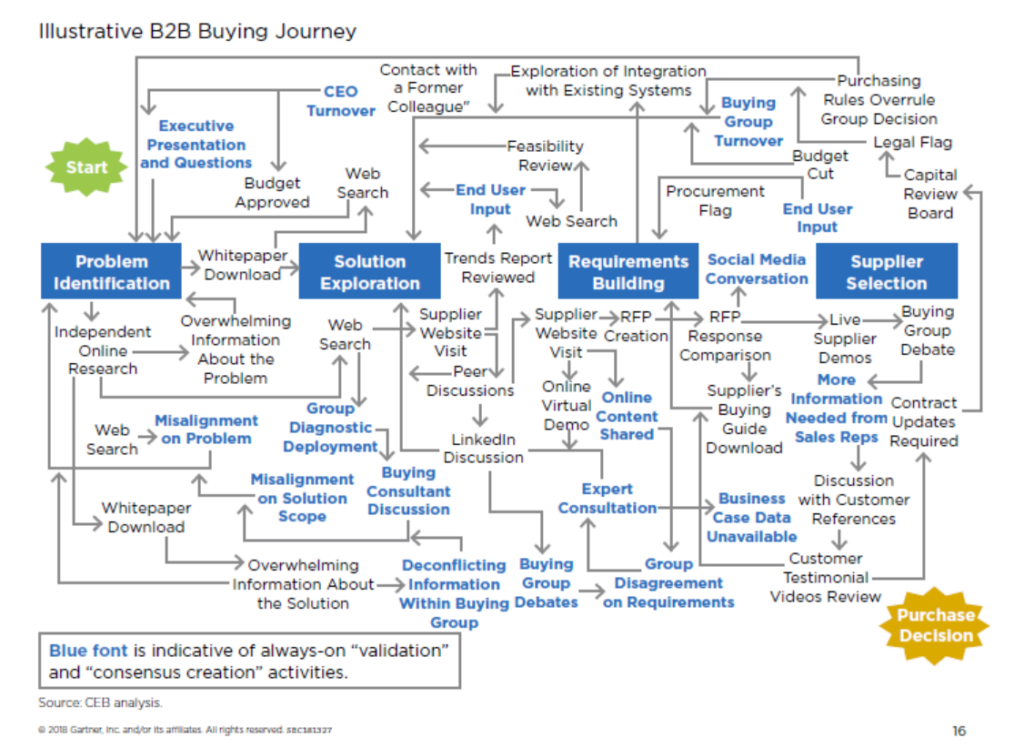
As sales professionals we face an intriguing paradox. We know, for complex B2B buying, the buyer’s journey can best be described as chaotic. What we have always believed is a linear process: identify a challenge, commit to change, define the problem/needs, evaluate alternatives, select a solution, turns out to be chaotic, as illustrated by the picture below:
At the same time, we have a relatively linear sales process: prospect, qualify, discover, propose, close. A sales process is critical for our success. It enables us to focus on the right opportunities. It provides a framework for the things we must do, with the customer, that are likely to result in an order.
But how do we marry the two? We know we have to align our selling process with the customer buying process. But how do we align a chaotic buying journey with the relatively linear selling process? How do we manage this paradox?
Some would advocate, “We have to meet the customer where they are at.” In that sense, we must be able to understand where the customer is at a certain point in their buying journey, responding in a way that is helpful to them, wherever they are at.
But then, what we do becomes unpredictable. We have little idea of what to do next, how to be most helpful to the customer, and how do know that we are on target to achieving our goals?
Some, too many, ignore the customer buying process, focusing only on our selling process: qualify, demo, propose, close….
We know neither alternative is very workable, what are we to do?
Further, we have to consider the customer doesn’t have a chaotic buying process by design, it’s just what happens to any complex project in any organization (regardless of whether buying is part of that project). As Mort Hansen indicates in Collaboration, a high percentage of internal projects end in failure.
We are not being the most helpful by just responding to the customer buying journey, we must help the customer simplify and navigate that buying journey. Ideally, helping them reach a linear buying journey, to which we align our sales process.
The paradox of the chaotic buying process and the linear sales process becomes very helpful. Since our selling process is oriented around our best experience of helping customers navigate their buying process in the simplest, most disciplined way, we can help the customer more effectively manage the process and achieve success.
We will never succeed in making the process completely linear, at least in complex B2B buying, but we create great value by helping the customer simplify it, making it much less complex/chaotic, and helping them successfully navigate it to achieve their goals.













